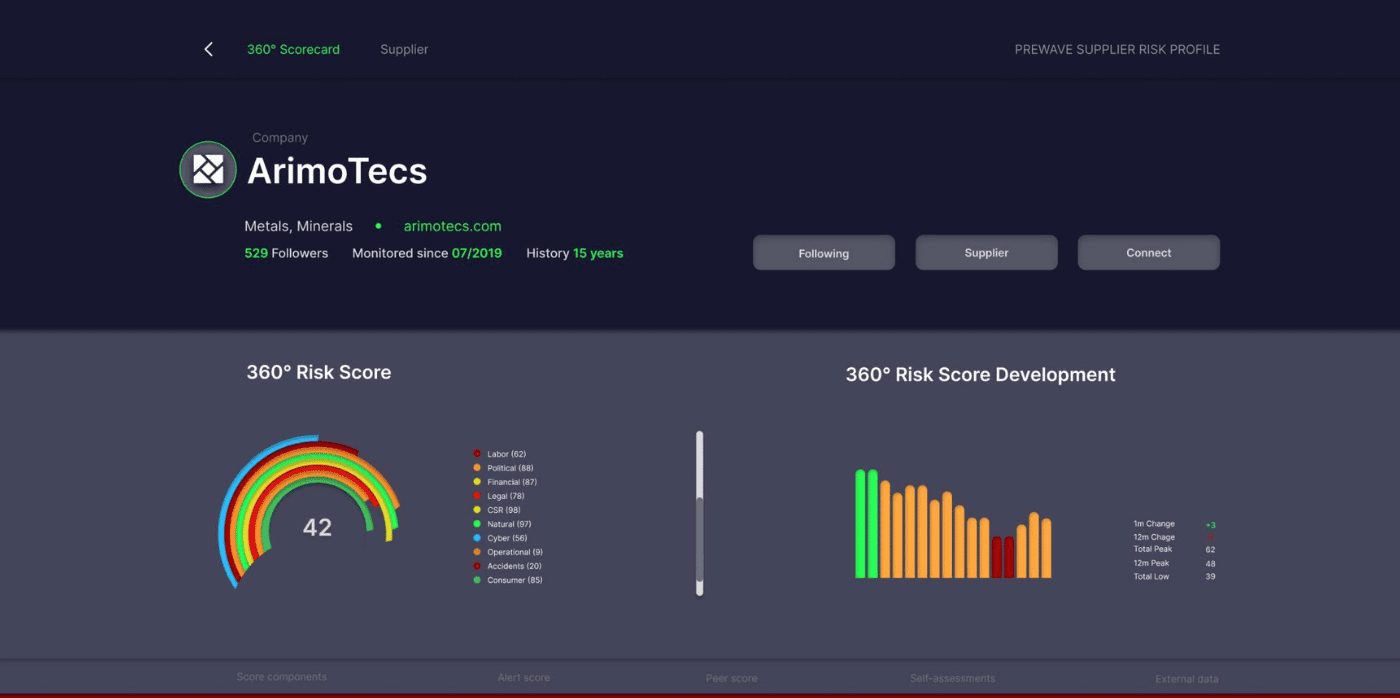Predicting supply chain risks with AI

Spotted: Supply chain disruption is a huge cost for organisations around the world. In fact, one 2022 survey of more than 1,500 global supply chain leaders found that the average annual cost of supply chain disruptions to each organisation was $182 million. And within this, ESG-related disruptions alone cost companies, on average, $35 million (around €32.2 million) per year.
The financial driver of disruption costs, combined with regulatory initiatives such as the German Supply Chain Act, is pushing companies to have better visibility along their supply chains. However, these supply chains are more complex than ever, which makes achieving visibility difficult. This is the challenge that Austrian startup Prewave hopes to address.
The Vienna-based company has developed an artificial intelligence (AI) powered platform that enables brands to keep tabs on their suppliers by analysing millions of data sources from across the internet and social media. This analysis generates alerts when relevant issues with a supplier are detected – from disruptive events, such as storms and earthquakes, to cybersecurity breaches, and reputationally damaging CSR incidents.
But what makes the Prewave platform particularly valuable for brands is the fact that its AI is predictive, which means it can forecast risk events before they happen. For example, the company claims that its technology was able to predict seaport strikes in Indonesia 18 days in advance.
If a risk alert is received, the company can contact the supplier directly through the Prewave platform to ask for further information and to collaborate on resolving the issue. Employees can also assign the alerts to their colleagues.
In May, Prewave received €18 million in a series A+ funding round, and the startup has already secured prestigious customers including Audi, ABInBev, and KTM.
As supply chains become increasingly complex, it’s more important than ever for companies to optimise them. In the archive, Springwise has also spotted a decarbonisation platform and the use of blockchain to enable supply chain transparency.
Written By: Matthew Hempstead

